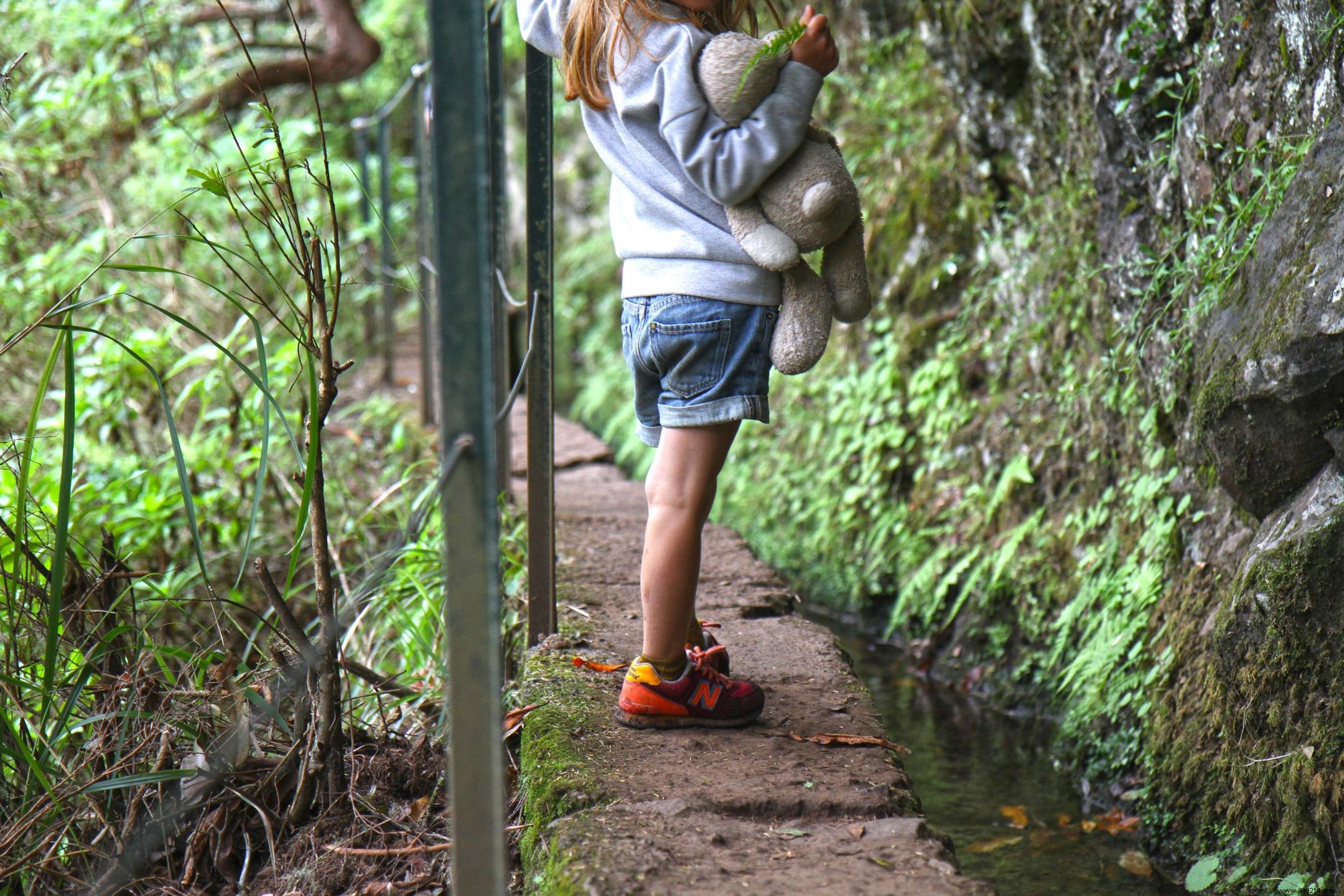
Ah, running, they know how to do it, but when it comes to walking, hiking, you can already hear them moaning before they have started! There is certainly a critical age, between 3 and 5 years old where clearly it is complicated to hike with children. Because they are too heavy to carry and will spend more time stomping than actually moving forward. As they grow, they can cover longer distances and find real interests there.
Walking the footbridges, Alquezar, Spain
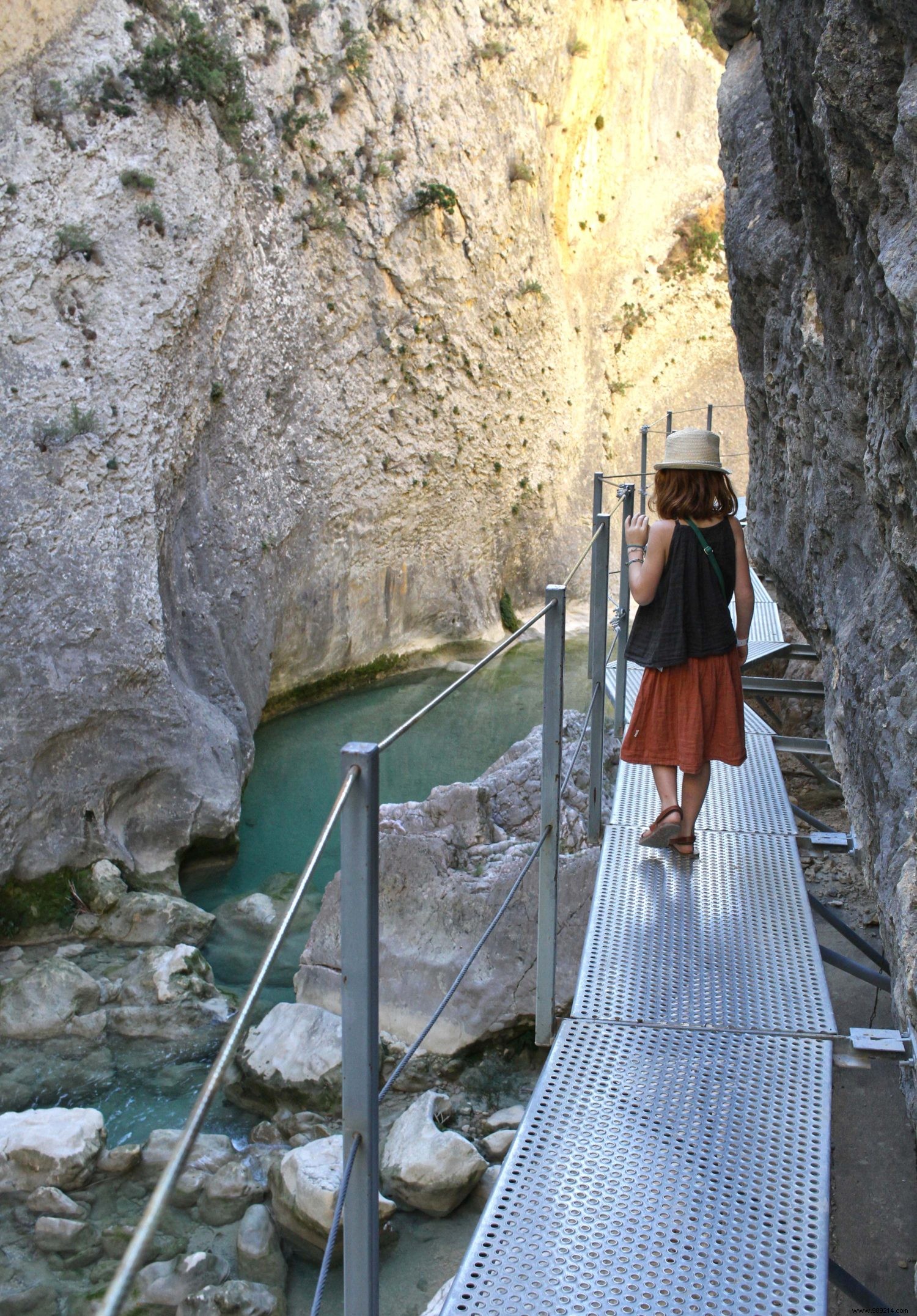
Walking is a real pleasure. The hike allows you to be together, without being interrupted by the ringing of the telephone or by the sight of the pile of dirty laundry. It's a simple activity, easy to set up, inexpensive and allows you to share a pleasant moment with your family.
Walk on the old salt marshes of Peyriac-de-mer
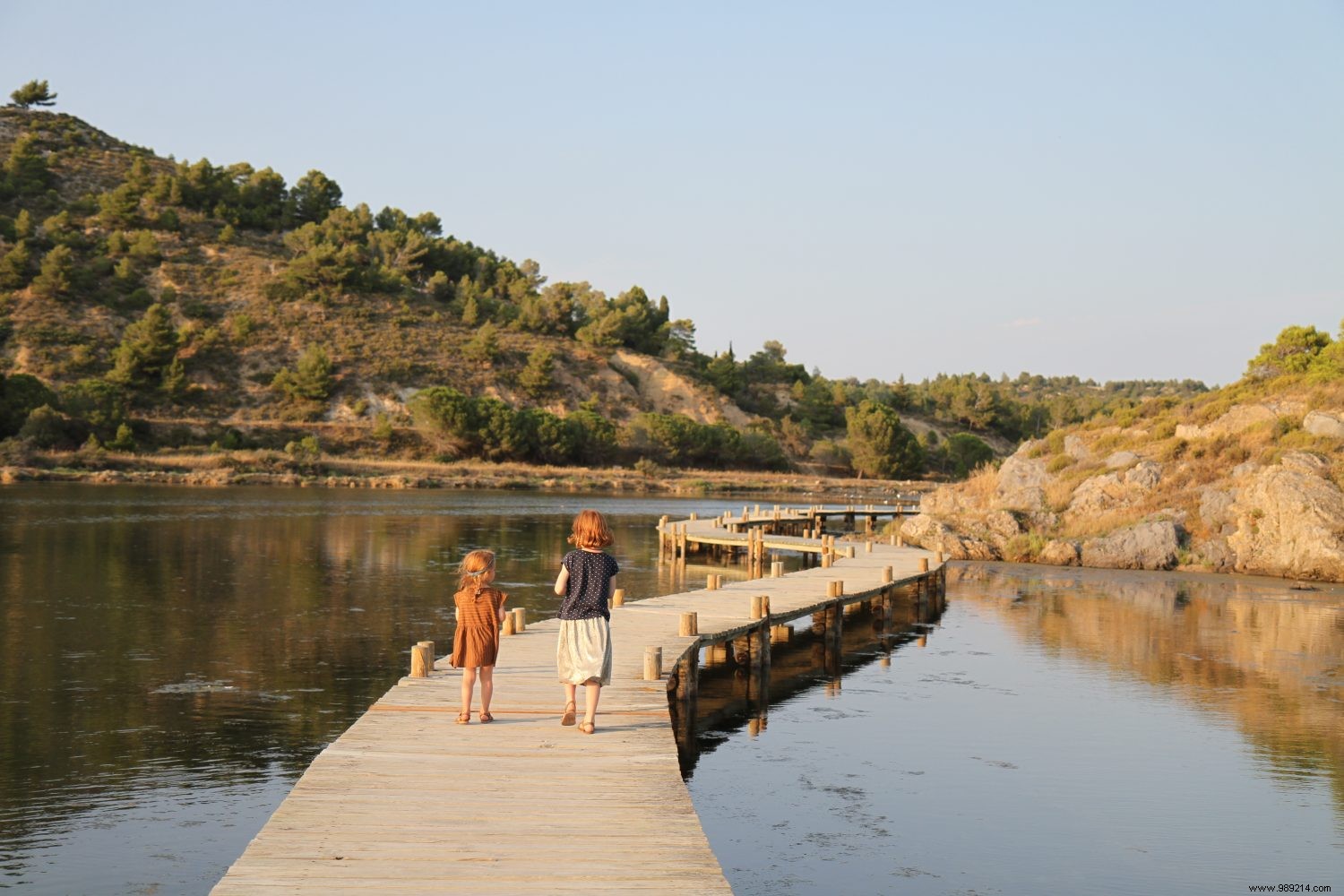
Everyone knows that exercising is good for your health and it leads to better sleep and less restlessness. The equation (of this exercise!) is also valid for children. They will also develop their agility and endurance. Walking is also a great way to challenge yourself.
The idea is not to venture into treks with children but to take on small challenges as a family to give them a taste for effort.
Start with a few miles without elevation and gradually increase the difficulty, while keeping in mind to try to progress on playful terrain for children so as not to put them in difficulty. Thus, forget the hikes under a blazing heat in the middle of desert landscapes, favor the wide open spaces with abundant fauna and flora . They will come out grown up and proud of their achievements.
The stunning Malham Cove hike in Yorkshire
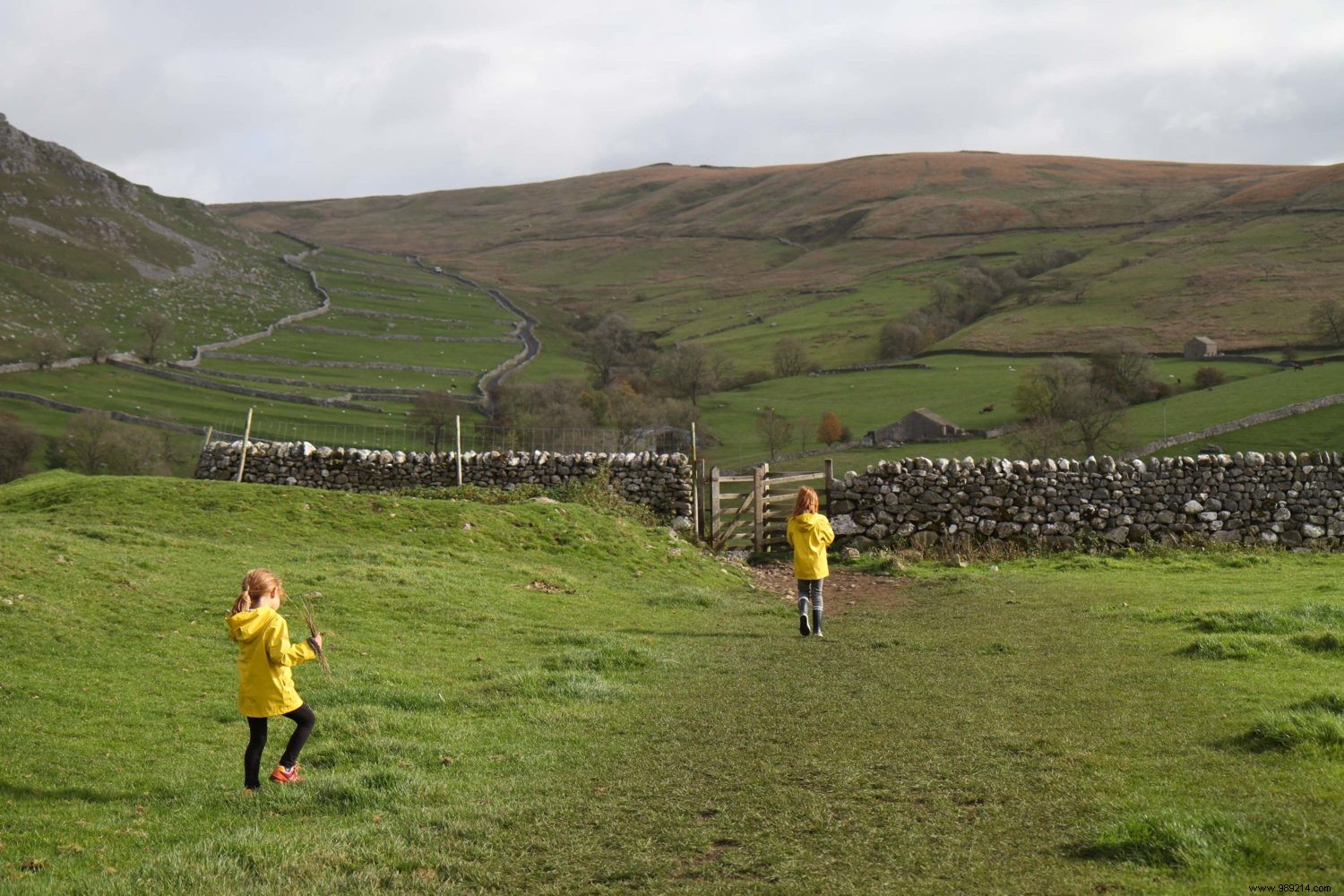
Exploring hidden places, secret places, places where you can't go except by walking. Today we can move everywhere:take roadtrips by car, travel the world by plane or even travel from your sofa with Google maps. Walking allows us to go where new technologies cannot take us. If there are not many unexplored places left to discover in the world, walking allows the attentive discovery of a very particular area.
Don't forget to take with you a suitable pair of binoculars, an impression molding kit, a compass, an opinel or a small magnifying glass . From the infinitely large to the infinitely small, Nature is a world to explore when you are little.
22 months, walk around the boiling pots in Hveragerdi, Iceland
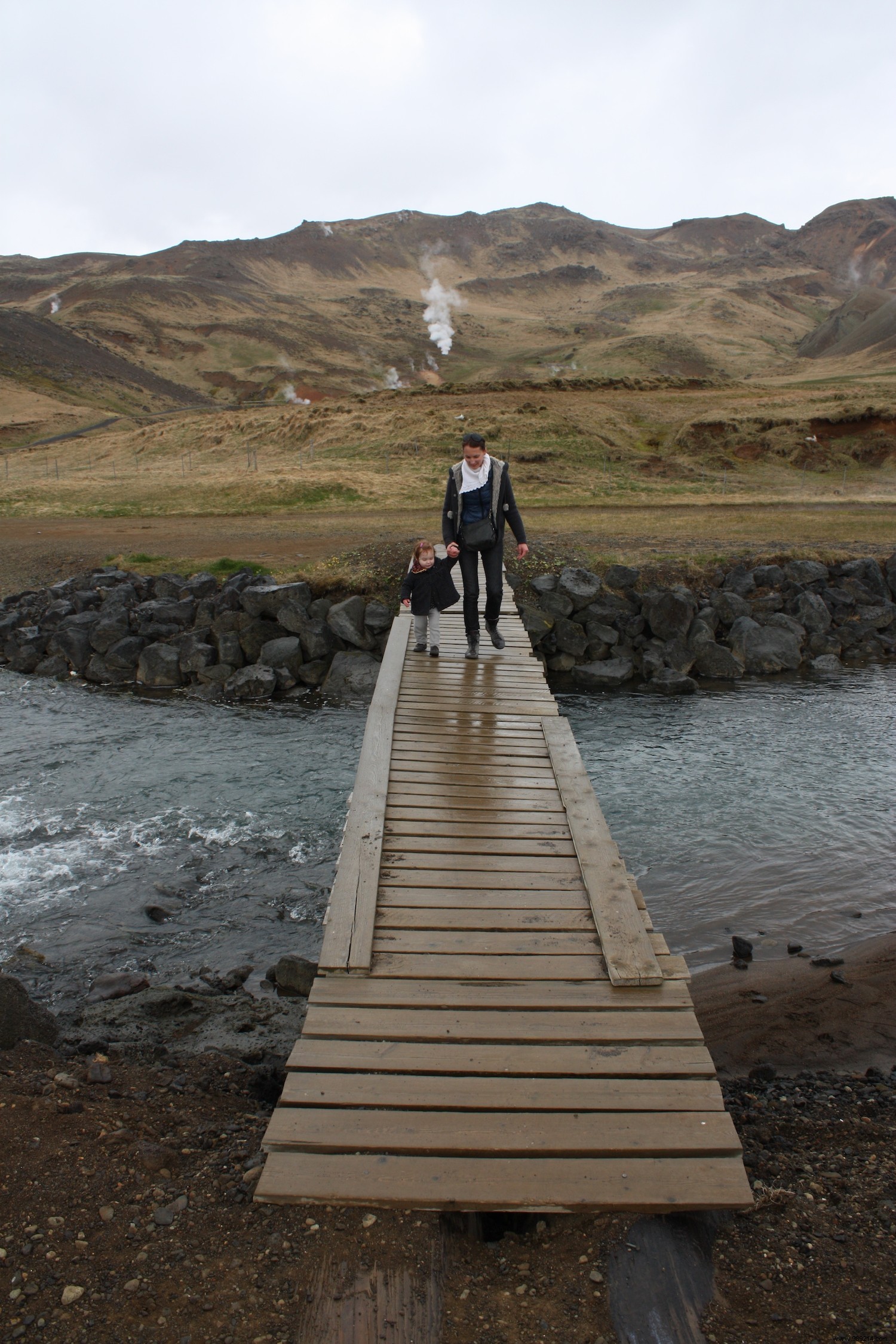
In a world where we always want to go faster, by car, by plane, with 4G.
In the streets and on the sidewalks, the electric motor has replaced the movement of the feet on bicycles or scooters.
Our children can even move forward while remaining static with new devices such as hoverboards or unicycles.
Taking the time to walk when we could run forces us to slow down and appreciate the passage of time. Our long hikes in Madeira really gave us the impression of enjoying the present moment more. With the children, without any pressure, we walk at their pace . To the rhythm of their discovery of Nature, contemplating a landscape, dipping their hands in a levada, climbing the rocks.
During one of our hikes in Madeira
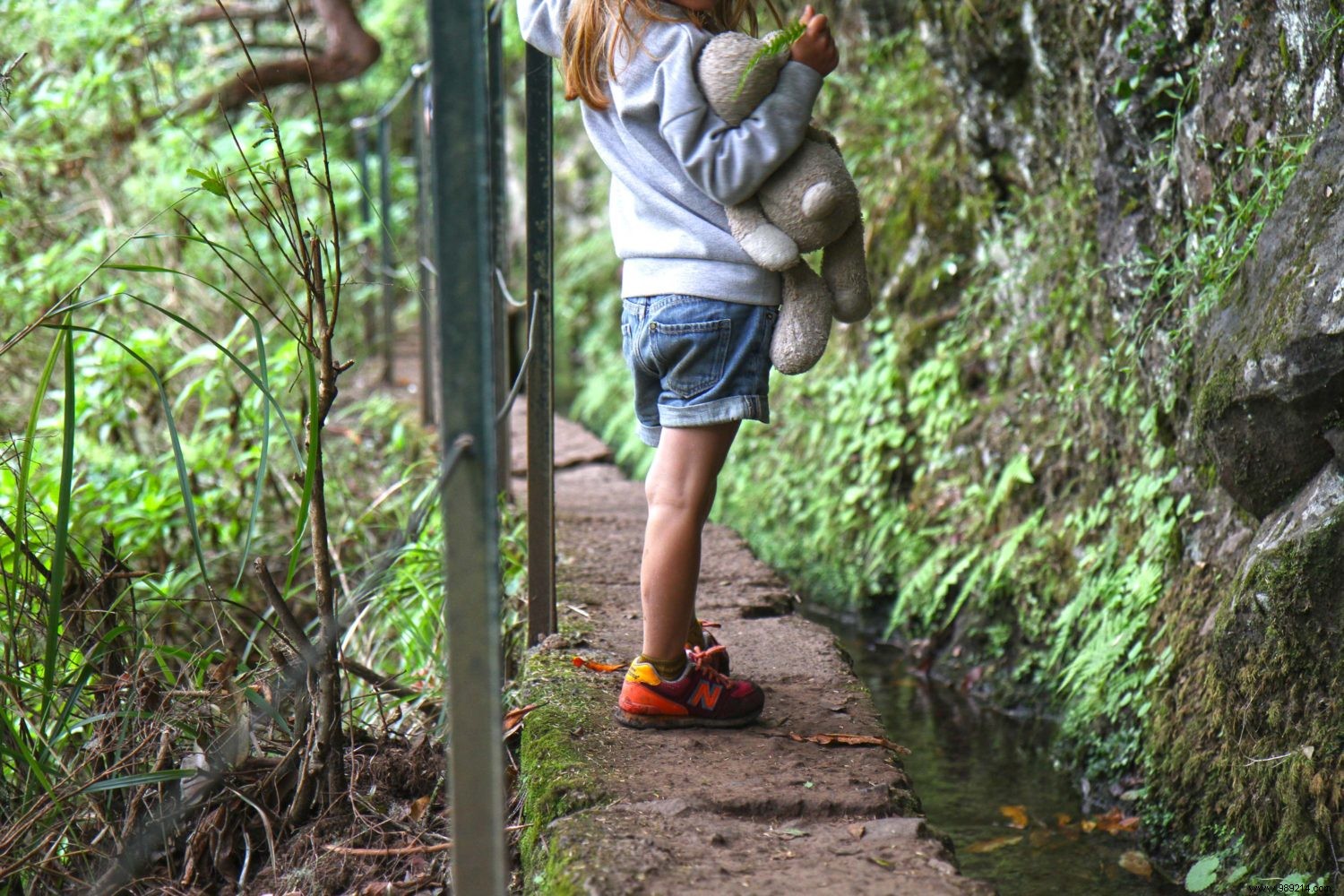
While walking, children will not learn their grammar or multiplication tables. But they will their senses and will learn just as much if not more in the middle of Nature.
There are very pragmatic lessons like respecting safety rules while hiking so as not to put yourself in danger by watching where you step. And then there are lessons that will appeal to children's senses. Look for footprints, smell the flowers, listen to the buzzing of bees, touch the bark of trees, taste wild strawberries. All this learning will be pretexts according to your own knowledge to be developed. On the life cycle of a plant, on the name of flowers, on the role of bees in our ecosystem. Or on the cycle of the seasons, on the role of the sun, on our solar system and our existence on Earth. And thus deviate on more philosophical subjects.
In short, so many themes to discuss with our children who are an open door to dialogue, exchange and better memorization. Because we retain what we see, what we experience.
More simply, the pretext for a hike can also be cultural with the visit of a fortified castle or more recreational such as swimming in a lake. Kids will love it!
Hiking in the Land of Volcanoes and Wild Animals, Costa Rica
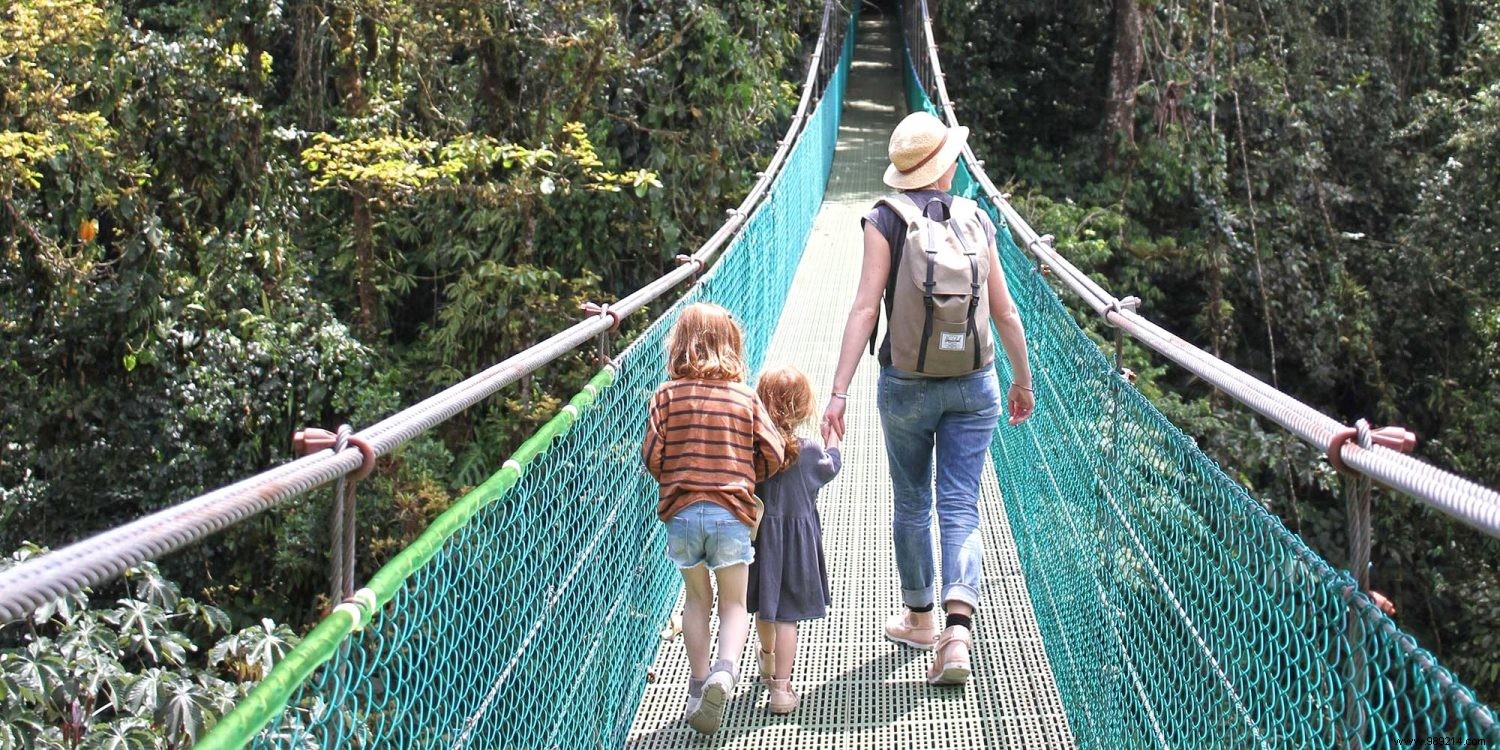
To make the hikes attractive for children, you can organize small, easy games .
We often play at enumerating the letters of the alphabet and finding objects, things, people that we meet. A for tree, B for branches, C for "When are we there!?!" ”.
To motivate the troops you can also challenge them and play seek and find . If you have a little time, you can prepare a little nature bingo for them. Each of the children must check off the things to find during their hike to validate their grid. Birds, leaves, flowers, animal prints, trees, pebbles, shells... Everything is an excuse to capture their attention and distract them from the number of kilometers still to be covered.
The Narrows, Zion National Park, USA
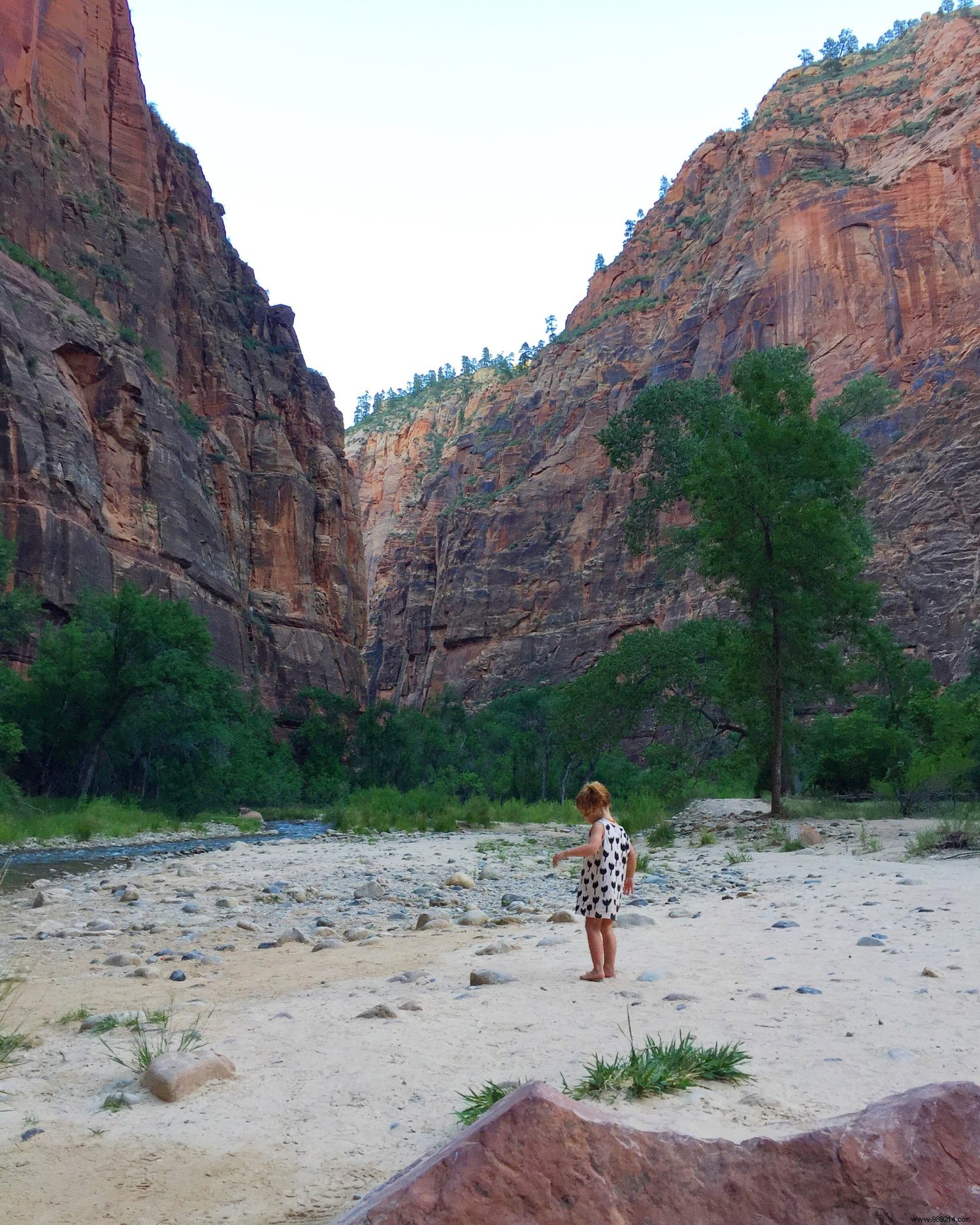
I leave you with a quote from Jacques Lacarrière, writer and walker.
"Ask someone to close their eyes and say spontaneously, without any thought, what the word 'walk' means to them. Most often, he will answer:path, sun, wind, sky, horizon, space. I had fun with this experiment and I was surprised by these answers. Because “walking” could also evoke:rain, storm, sweat, fatigue, blister, corn on the feet, sprain, fall, sinking, engulfment. But it seems that these latter associations — which would have been common in earlier centuries — no longer come to mind today. As if the mere word of walking released unexpressed or unlived dreams, needs for space and horizon, and above all desires for freedom, the unexpected, adventure. »